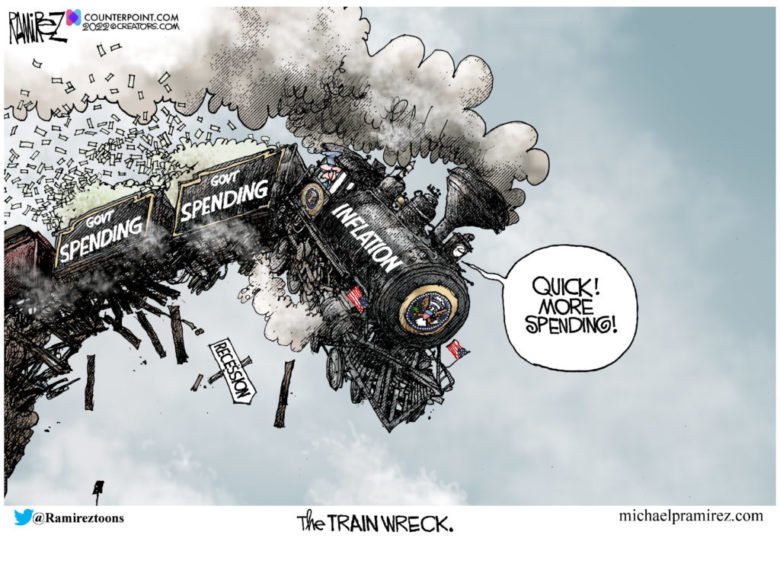The United Nations has just issued a warning about future worldwide economic conditions. They forecast a global recession and a severe inflation problem. They said that the advanced economies must act immediately to reduce inflation. But they also say they want the Central Banks to reverse course with interest rates and stop raising them.
So how would inflation be reduced?
The US Federal Reserve and most Central Banks in Europe reversed their shockingly irresponsible money policy used last year. Today the central banks are determined to reduce inflation.
In early 2021, the US economy was growing at a 6% rate, the CPI was increasing monthly, the Federal Government was about to spend another $3 trillion, and the Fed kept vastly expanding the money supply while keeping interest rates near zero. It was clear that inflation was going to be a problem. Yet the Fed did nothing and maintained the expansionary monetary policy.
Finally, in March of this year, the Fed stopped its bond-buying program and started to raise interest rates. By then, the excess demand from government policy coupled with some energy inflation and wage inflation, brought the annual inflation rate to 7%.
In June, the Fed got serious about reducing inflation. They knew that the only way to reduce inflation was to raise interest rates substantially. That would reduce demand and put downward pressure on prices.
The Fed and other Central Banks have gotten extremely aggressive with rate hikes. Because the inflation rate is 8% and could rise to near double-digit levels by year-end, interest rates may have to go up significantly. That could mean they rise above the inflation rate.
The UN correctly points out that a global recession is coming. In fact, some argue that much of the world, including the US and China, are already in a recession. The UN also says that the inflation problem must be resolved. But they blame the high-interest rates for the upcoming global recession.
The UN called on the central banks of the US and Europe “to revert course and avoid the temptation to try to down prices by relying on even higher interest rates.”
Further, they argue. “Lower inflation targets are not worth the pain of continuing hikes in interest rates.”
The pain of inflation, which impacts nearly everyone is far worse than the pain from a recession. At this point, the only proven method to reduce embedded inflation is to reduce demand by reducing the rate of growth in the money supply and by increasing interest rates.
This is exactly what happened in 1980. After a decade of runaway inflation, Fed Chair Paul Volker severely reduced the rate of growth of the money and push interest rates above the inflation rate which peaked at 14%. Inflation came down, but it brought on a severe recession. That is the UN’s fear today. And that’s what is probably going to happen.
The UN Conference on Trade and Development (UNCTAD) would disagree with the premise that high interest rates will reduce inflation. They also warn of the severe recession that high interest rates may cause.
“Policymakers appear to be hoping that a short sharp monetary shock — along the lines, if not of the same magnitude, as that pursued by the United States Federal Reserve (the Fed) under Paul Volcker — will be sufficient to anchor inflationary expectations without triggering recession,” the UNCTAD report said.
The report continued, “Sifting through the economic entrails of a bygone era is unlikely, however, to provide the forward guidance needed for a softer landing given the deep structural and behavioral changes that have taken place in many economies, particularly those related to financialization, market concentration and labor’s bargaining power.”
The UN wants things like price controls or simply telling corporations not to charge high prices and make huge profits. Price controls never work. They create shortages in the short run and even higher prices in the long run. Corporations charge the market equilibrium price. Sometimes that yields high profits and sometimes, like in 2020, it yields losses.
Neither of those actions will reduce inflation.
The Fed and most central banks followed a shockingly irresponsible money policy in 2021. That coupled with excess government spending, a supply restricting energy policy, global supply chain disruptions and the Ukrainian war, has resulted in the worst inflation problem since 1981.
The only remedy is much higher interest rates, even though a global recession will follow.


